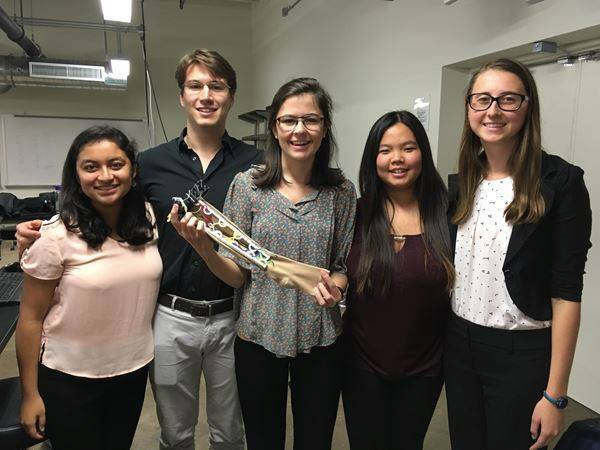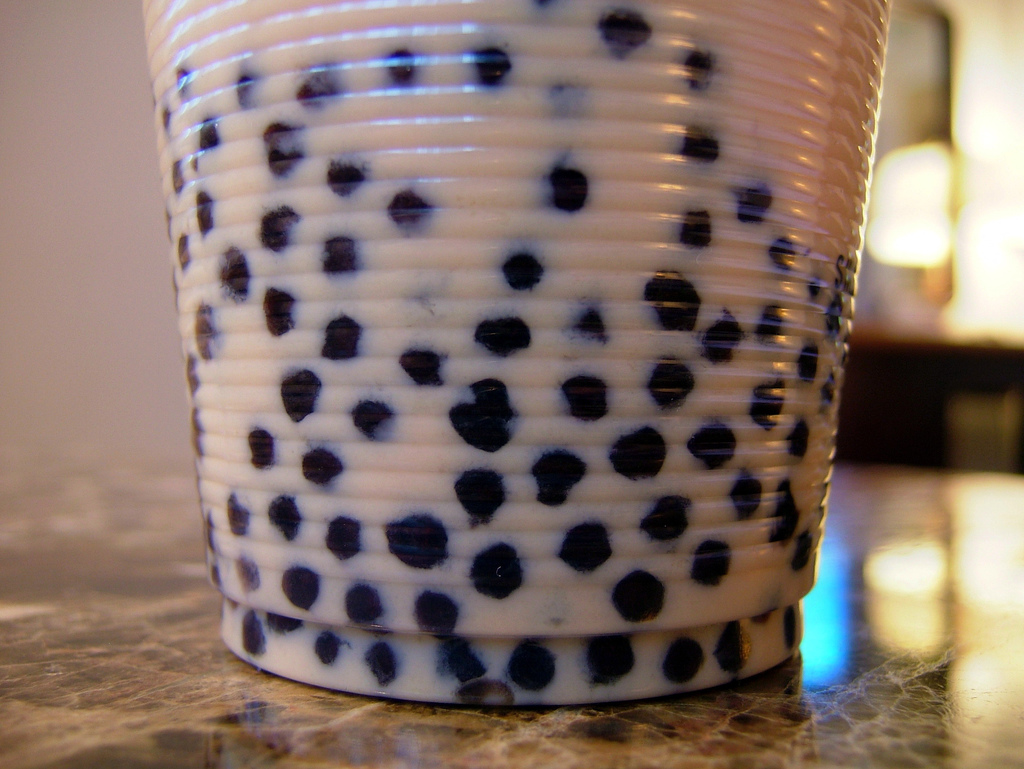What is an elevator pitch?
The 8th Annual Rice Undergraduate Elevator Pitch Competition was held on Wednesday, November 16. Elevator pitches describe a problem or need and a design solution in 90 seconds or less. Judges evaluated the pitches based on technical merits of the project as well as the team’s pers uasive speaking abilities.
uasive speaking abilities.
Who can participate in the Rice Elevator Pitch Competition?
Although the competition was open to any Rice undergraduate student or team with a business concept or idea, this year senior engineering design teams won each of the ten finalist positions. Some of the ideas pitched in the finals included cost-efficient retractable needles targeted toward patients in India, single-arm propulsion wheelchairs for low-income patients who have shoulder injuries and a mechanical hippotherapy device.
The 2016 winners: Diabetes Compression Sock
Jessica Griffiths, Nikitha Cherayil, Crystal Lin, Amy Fox and Lucas Navarro won First Place and the Popular Choice Award for their pitch. This senior engineering design team pitched their plan to design a more effective compression sock for diabetes mellitus patients. The inspiration for team’s design is personal; a team member’s grandfather had to wear traditional compression socks to prevent blood clots. Her grandfather struggled to put on these socks by himself, and resorted to enlisting family members for help. Many patients forgo the socks altogether due to this struggle. Jessica Griffiths says a redesigned compression sock could increase patient compliance in wearing the socks, which in turn would decrease their risk for blood clots.
Benefits of participating in the elevator pitch competition
Griffiths praises the elevator pitch competition for giving senior design teams a unique opportunity to showcase their projects. “[The competition] was good for us and the other teams to compete in, because we don’t usually compete against each other.” She also recommends that non-senior design teams enter the competition, particularly freshman  engineering students enrolled in ENGI 120. She says that “The entrepreneurship at Rice is one of the best in the nation because we have such creative students here, the Elevator Pitch Competition is excellent practice to learn to present not only something you’re working on but also yourself.”
engineering students enrolled in ENGI 120. She says that “The entrepreneurship at Rice is one of the best in the nation because we have such creative students here, the Elevator Pitch Competition is excellent practice to learn to present not only something you’re working on but also yourself.”
Upcoming Rice Entrepreneurship Event
The 17th annual Rice Business Plan Competition, the world’s “richest and largest” graduate-level student startup competition, will be held April 6-8, 2017. Applications are being accepted through February 10.
Hundreds of teams apply to the competition, hoping to receive some of the over $1.5 million in cash and prizes available. Over 180 corporate and private sponsors provide support to the competition and investors from all around the nation volunteer to judge.



 Andrew Maust joined the team last spring after going to several tea tastings. Since then, he’s climbed the ladder from kitchen worker to operations manager.
Andrew Maust joined the team last spring after going to several tea tastings. Since then, he’s climbed the ladder from kitchen worker to operations manager.